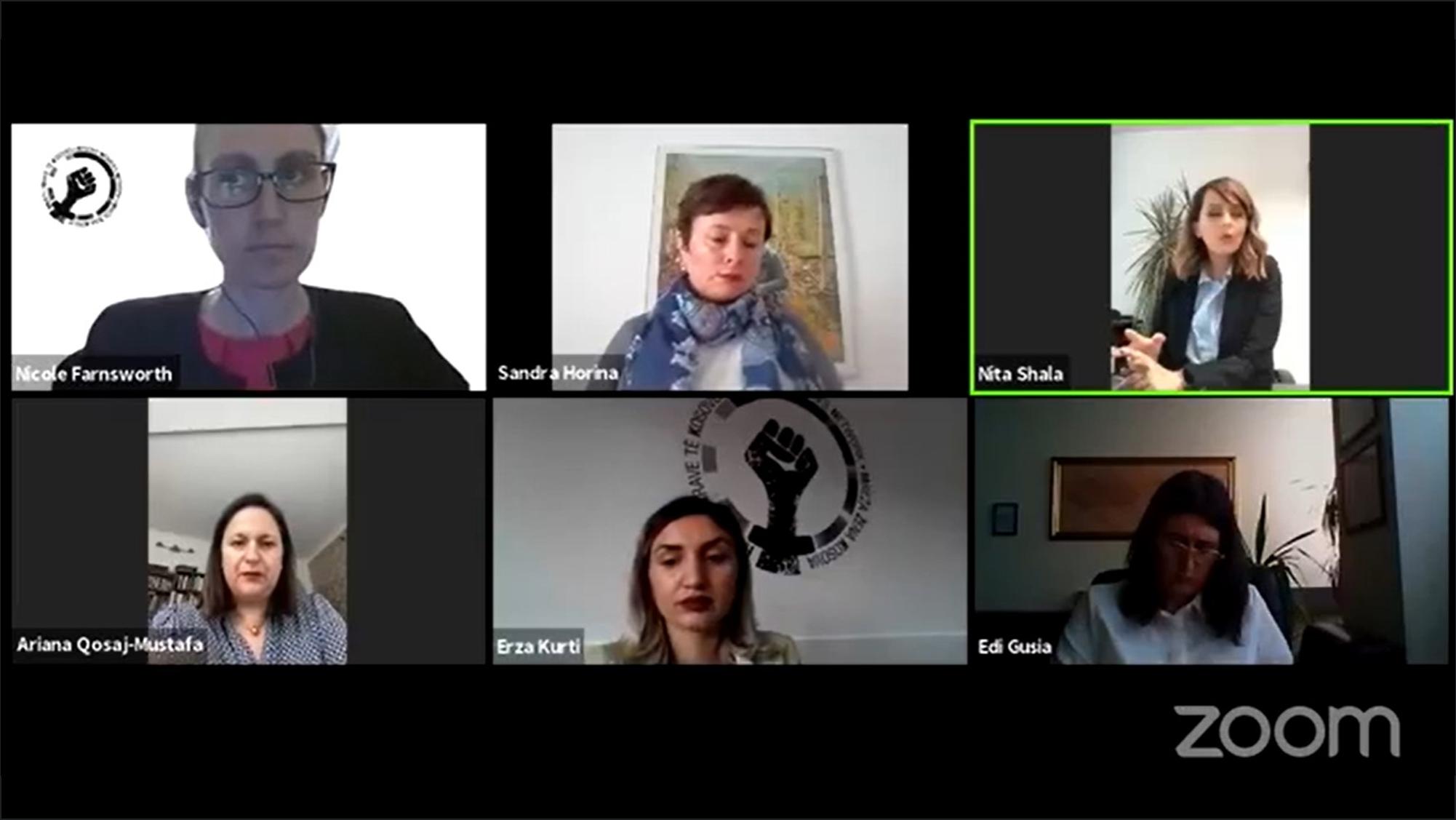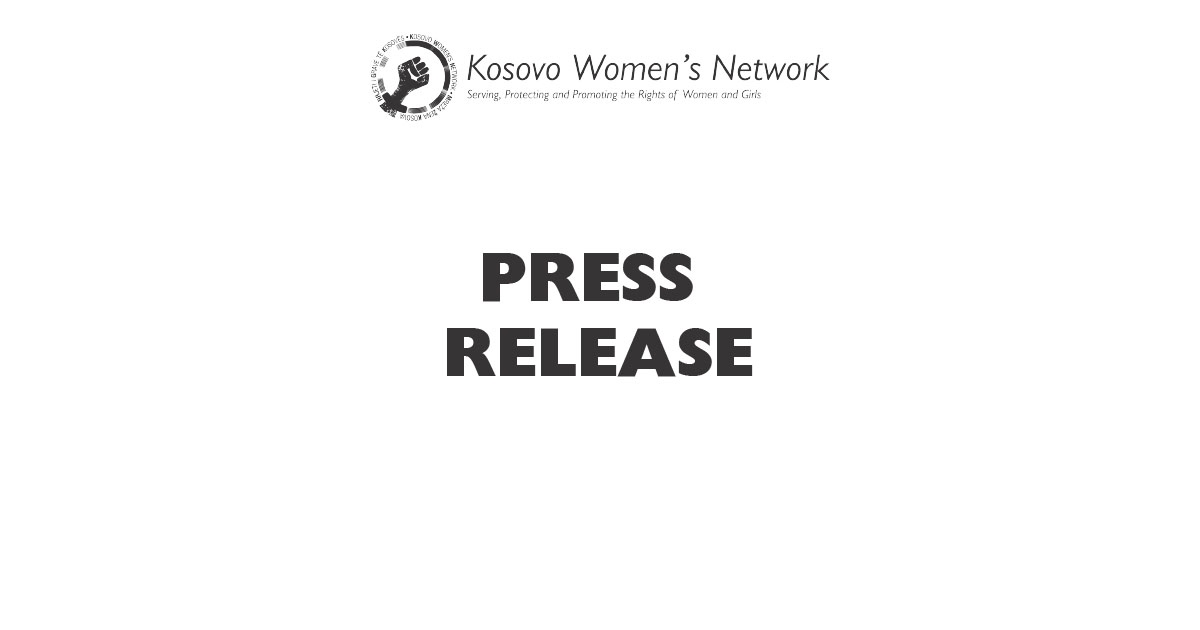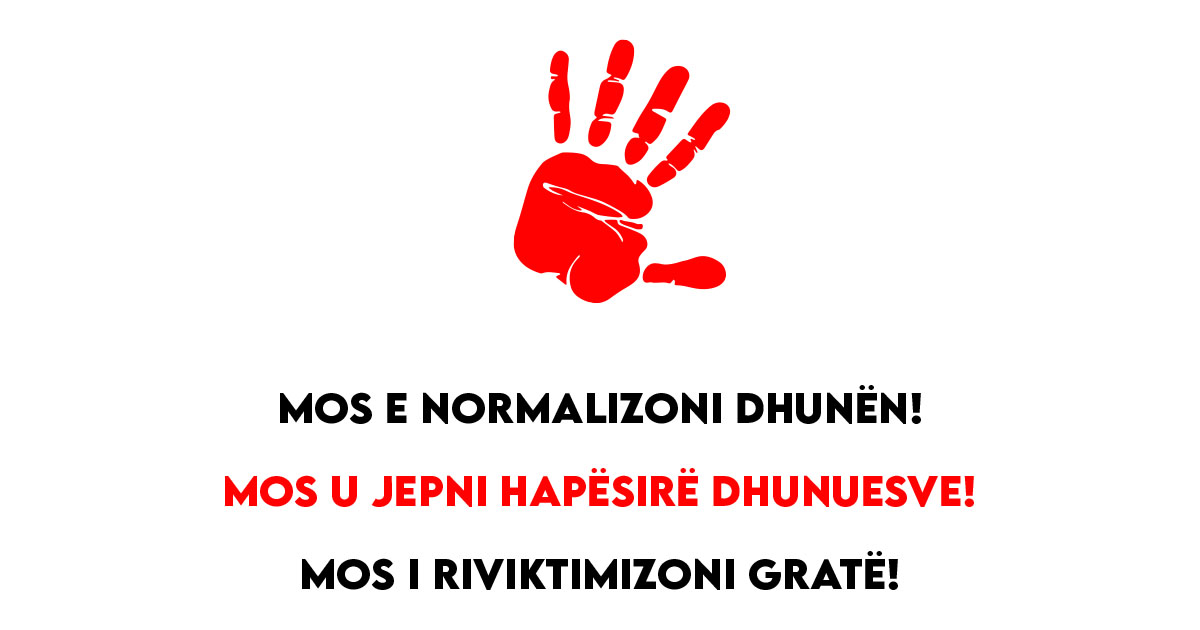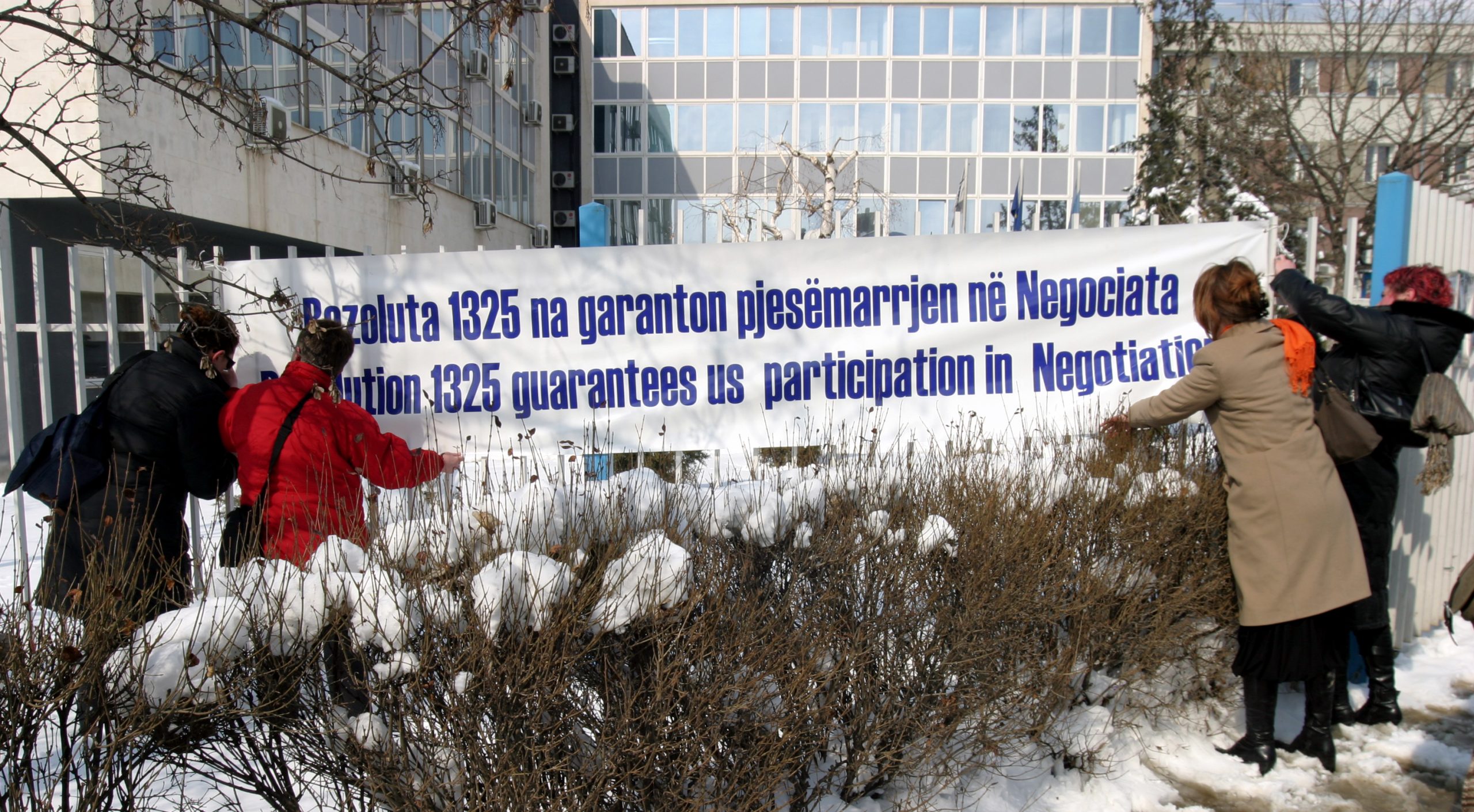On 28 April 2021, the Kosovo Women’s Network (KWN) and the Agency for Gender Equality in the Office of the Prime Minister of the Republic of Kosovo co-hosted the online launching of the report From Laws to Action: Monitoring the Institutional Response to Gender-based Violence in Kosovo.
With financial support from the Austrian Development Agency (ADA) the operational unit of Austrian Development Cooperation, this report written by KWN assesses the extent to which Kosovo’s legal framework has been aligned with the Istanbul Convention, ratified by the Assembly of Kosovo last year; and responsible institutions’ implementation of the relevant legal framework for addressing gender-based violence, including the National Strategy on Protection from Domestic Violence and Action Plan (2016-2020).
The report launching brought together representatives of Kosovo institutions, international organizations and women’s rights organizations to discuss recommendations and a joint way forward.
Ariana Qosaj-Mustafa, KWN Chair of the Board, highlighted the importance of this report towards addressing gender-based violence in Kosovo.
“From Laws to Action looks at the implementation of some of the most important principles defined in the Istanbul Convention on Combating Gender-based Violence and shows to what extent Kosovo institutions are willing to implement them. KWN’s work, once again, shows a strong voice in preventing and combating violence against women.”
Edi Gusia, Chief Executive Officer of the Agency for Gender Equality in the Office of the Prime Minister of the Republic of Kosovo emphasized the timeliness of the report.
“We are witnesses that in the last two years we have lost the lives of women precisely as a result of recidivism, cases which have been a warning chronicle of murder and unfortunately, we have not managed to save the lives of these women. I believe this is an alarm for all of us as a society which aims at the implementation of the law. This is our final call to coordinate, agree and take over separate responsibilities. To have much more institutional accountability towards the phenomenon of treatment, but, above all, also prevention”, she emphasized. She stated the Agency’s commitment for further cooperation with KWN.
Further, Nita Shala, Deputy Minister of Justice and National Coordinator on Protection from Domestic Violence said that institutional address of the phenomenon of domestic violence is one of the priorities of the Government.
“In fulfilment of my mandate, as Deputy Minister of Justice and National Coordinator on Protection from Domestic Violence, I aim at inter-institutional coordination and activation in prevention, protection and security, support, treatment and reintegration, with the will to build an effective institutional response against this phenomenon.”
Whereas Sandra Horina, Counsellor and Head of the Austrian Development Cooperation’s Coordination Office in Pristina, expressed her interest in continuing the fight for a world with no gender-based violence.
“ADA is honoured to support this research report written by KWN. Fighting gender-based violence must be a priority for Kosovo institutions and it is a priority for us as well. We are optimistic to believe that, thanks to the efforts of KWN and all respective institutions, this path is going in the right direction”.
Some of the key recommendations include:
- Establish a new Law on Protection from All Forms of Gender-based Violence to replace the Law on Protection from Domestic Violence.
- Adopt the Draft Criminal Procedure Code to strengthen victims’ rights.
- Develop and adopt a comprehensive National Strategy and Action Plan addressing all forms of gender-based violence.
- Amend the Law on Social and Family Services to include all protection, rehabilitation, and reintegration services foreseen in the Istanbul Convention.
- Ensure obligative training for all responsible institutions on all forms of gender-based violence, particularly sexual violence, and using a compassionate, victim-centred approach.
- Ensure institutions discontinue the practice of trying to reconcile couples, which often places victims at risk.
- Institutionalize education that will transform traditional gender norms and power relations, towards preventing violence.
- Improve financial and human capacities of municipal coordination mechanisms and social workers to create and implement comprehensive plans for the rehabilitation and reintegration of victims.
- Ensure adequate budget allocations for appropriately treating gender-based violence.
- Ensure all municipalities have a prosecutor specialised in gender-based violence cases and that such cases are allocated to them.
The full report will be published on KWN’s website soon, in Albanian, English and Serbian.
Please click HERE to watch the livestreaming of this launching.





